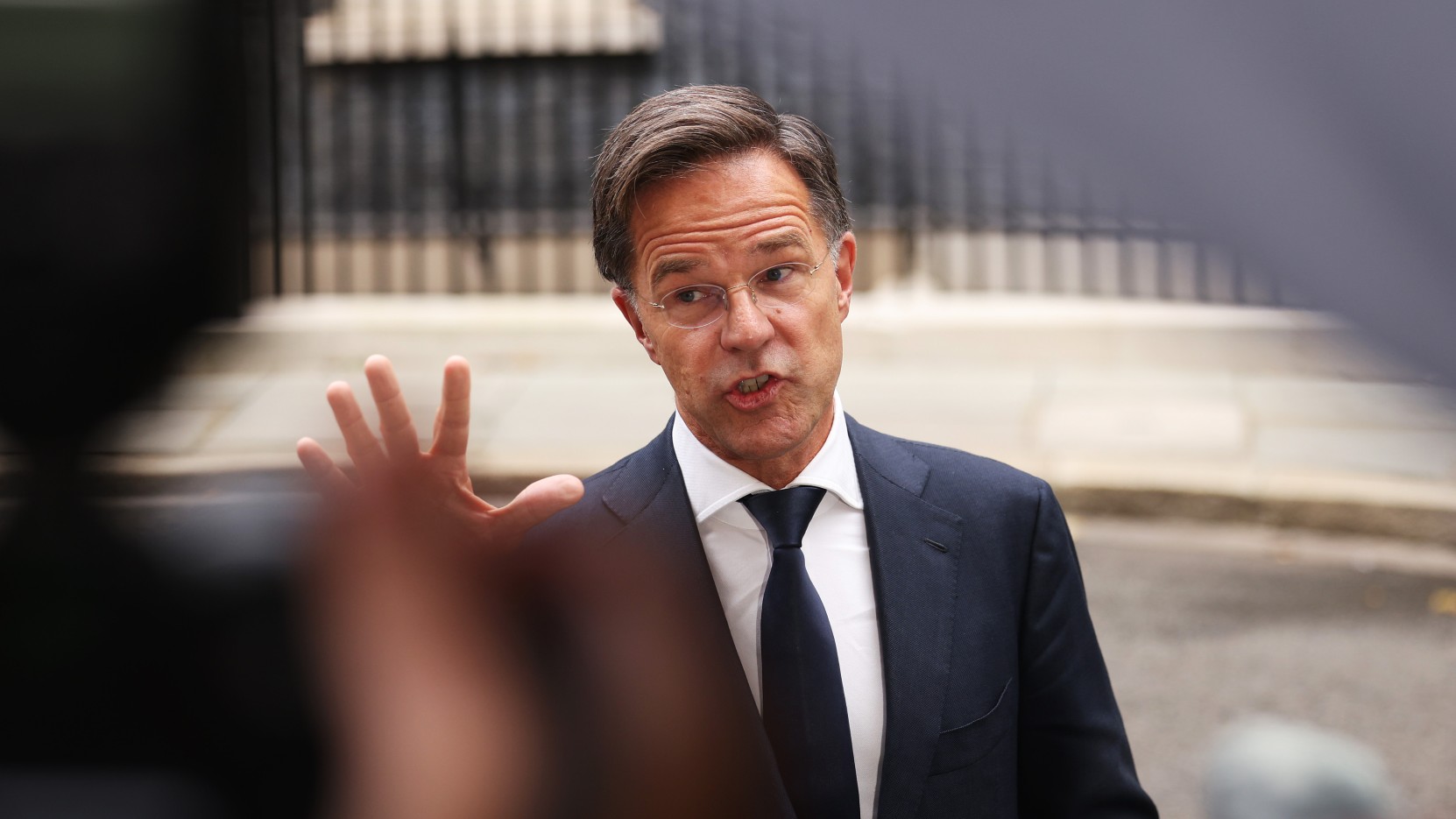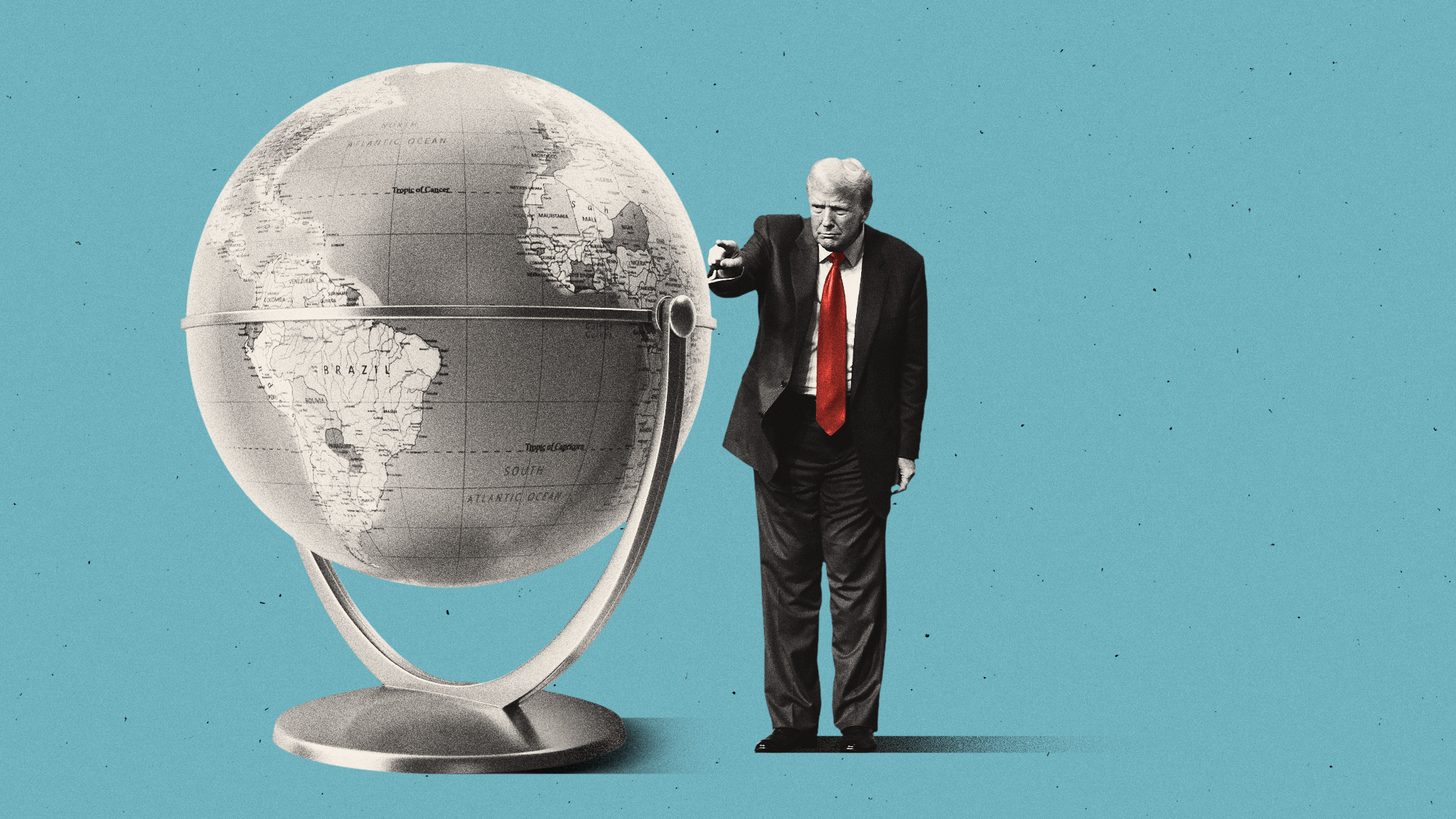Experts call for a Nato bank to 'Trump-proof' military spending
A new lender could aid co-operation between Western allies and save them millions of pounds

A free daily email with the biggest news stories of the day – and the best features from TheWeek.com
You are now subscribed
Your newsletter sign-up was successful
Europe and Ukraine should "Trump-proof" their military spending by setting up a "Nato bank", according to a report by a German and UK think tank.
As the White House election looms, there is concern over how a Donald Trump presidency could affect defence spending in Europe. The report asks leaders to "actively consider" urgent measures, including a Nato bank, said The Guardian.
Trump trepidations
The authors of the joint report said that if Trump wins next month, he could quickly slash US defence spending in Europe, push for a peace deal in Ukraine that surrenders parts of its territory to Russia, and might even withdraw from Nato altogether.
The Week
Escape your echo chamber. Get the facts behind the news, plus analysis from multiple perspectives.

Sign up for The Week's Free Newsletters
From our morning news briefing to a weekly Good News Newsletter, get the best of The Week delivered directly to your inbox.
From our morning news briefing to a weekly Good News Newsletter, get the best of The Week delivered directly to your inbox.
They warn of the possible collapse of diplomatic communication between Washington and Europe, US withdrawal of troops and military assets from Europe, and new tariffs leading to the downfall of the World Trade Organization.
Trump's first term was "littered with withdrawn treaties, tariffs on allies and praise for authoritarian governments", said Sam Goodman, one of the report's authors. With that in mind, Europe must "practically and pre-emptively bolster European defence, security and resilience" against a second-term Trump presidency.
To do that, Nato countries should support the creation of an allied multilateral lending institution, or a Nato bank, said the think tanks. The bank would be funded with "initial subscriptions from Nato members in return for authorised capital stock".
A Nato bank could "save nations millions on essential equipment purchases, offer low interest rates on loans to alliance members and introduce a new line of financing with longer repayment timeframes", it said.
A free daily email with the biggest news stories of the day – and the best features from TheWeek.com
Saving millions
This isn't the first time a Nato bank has been proposed. Writing for the Financial Times last April, Robert Murray, a former head of innovation at Nato, argued that the alliance's "current strategy of pleading and arm-twisting allies to spend more is painfully inadequate". An "Allied Multilateral Lending Institution – in other words, a Nato Bank" – could be a "game-changer".
When Murray floated the idea of a "feasible model" in 2019, he suggested that the bank could "generate additional resources through interest earned on paid-in subscription capital", and he "conservatively modelled" the bank's balance sheet at about $300 billion.
But Nato Secretary-General Mark Rutte has told the international community to "stop worrying about a Trump presidency" and its implications for the war in Ukraine. Speaking during a visit to London, he insisted he is "absolutely convinced" that the US is involved in the conflict "because they understand" that "the whole of the US would be less secure if Putin would be successful in Ukraine".
Rutte's comments "could raise eyebrows in some European capitals", said Politico. Trump has recently criticised Washington's involvement in the war in Ukraine, saying the country is "stuck" and will be able to "get out" if he wins the election, said Kyiv Independent.
Chas Newkey-Burden has been part of The Week Digital team for more than a decade and a journalist for 25 years, starting out on the irreverent football weekly 90 Minutes, before moving to lifestyle magazines Loaded and Attitude. He was a columnist for The Big Issue and landed a world exclusive with David Beckham that became the weekly magazine’s bestselling issue. He now writes regularly for The Guardian, The Telegraph, The Independent, Metro, FourFourTwo and the i new site. He is also the author of a number of non-fiction books.
-
 The ‘ravenous’ demand for Cornish minerals
The ‘ravenous’ demand for Cornish mineralsUnder the Radar Growing need for critical minerals to power tech has intensified ‘appetite’ for lithium, which could be a ‘huge boon’ for local economy
-
 Why are election experts taking Trump’s midterm threats seriously?
Why are election experts taking Trump’s midterm threats seriously?IN THE SPOTLIGHT As the president muses about polling place deployments and a centralized electoral system aimed at one-party control, lawmakers are taking this administration at its word
-
 ‘Restaurateurs have become millionaires’
‘Restaurateurs have become millionaires’Instant Opinion Opinion, comment and editorials of the day
-
 Munich Security Conference: a showdown between Europe and Trump?
Munich Security Conference: a showdown between Europe and Trump?Today’s Big Question Report suggests European leaders believe they can no longer rely on the US for military support – but decoupling is easier said than done
-
 What is ‘Arctic Sentry’ and will it deter Russia and China?
What is ‘Arctic Sentry’ and will it deter Russia and China?Today’s Big Question Nato considers joint operation and intelligence sharing in Arctic region, in face of Trump’s threats to seize Greenland for ‘protection’
-
 New START: the final US-Russia nuclear treaty about to expire
New START: the final US-Russia nuclear treaty about to expireThe Explainer The last agreement between Washington and Moscow expires within weeks
-
 What would a UK deployment to Ukraine look like?
What would a UK deployment to Ukraine look like?Today's Big Question Security agreement commits British and French forces in event of ceasefire
-
 Would Europe defend Greenland from US aggression?
Would Europe defend Greenland from US aggression?Today’s Big Question ‘Mildness’ of EU pushback against Trump provocation ‘illustrates the bind Europe finds itself in’
-
 Greenland, Colombia, Cuba: where is Donald Trump eyeing up next?
Greenland, Colombia, Cuba: where is Donald Trump eyeing up next?Today's Big Question Ousting Venezuela’s leader could embolden the US administration to exert its dominance elsewhere
-
 Did Trump just end the US-Europe alliance?
Did Trump just end the US-Europe alliance?Today's Big Question New US national security policy drops ‘grenade’ on Europe and should serve as ‘the mother of all wake-up calls’
-
 Is conscription the answer to Europe’s security woes?
Is conscription the answer to Europe’s security woes?Today's Big Question How best to boost troop numbers to deal with Russian threat is ‘prompting fierce and soul-searching debates’